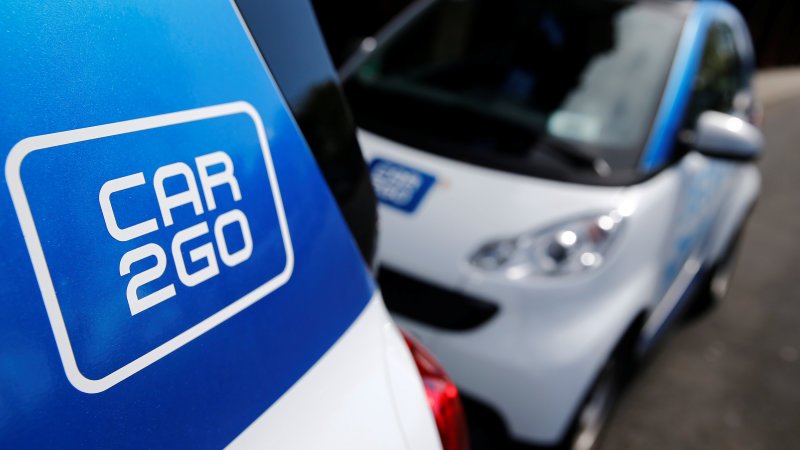German carmakers Daimler and BMW have joined forces to expand their businesses in new services such as car-sharing and electric vehicle charging, raising their full-year guidance to reflect the deal.
Mercedes-owner Daimler and BMW, Germany's two biggest luxury carmakers, are preparing for a new era in mobility services where self-driving cars could allow them to expand into a business segment currently dominated by Uber in the United States and Didi Chuxing in China.
Under the terms of the deal, which includes car-sharing units Car2Go and DriveNow as well as ride-hailing, parking and charging services, Daimler and BMW will each hold a 50 percent stake in a joint venture.
They said their goal was to offer customers a system of intelligent, seamlessly connected mobility services that could rapidly be expanded around the world, while continuing to compete on the market for luxury cars. Daimler is the owner of the Mercedes brand.
"As pioneers in automotive engineering, we will not leave the task of shaping future urban mobility to others," Daimler Chief Executive Dieter Zetsche said.
Consultancy PwC has said that conventional carmakers will become marginalized by cash-rich technology firms if they do not develop pay-per-mile mobility services.
Their share of global auto industry profits may fall from 85 percent to less than 50 percent by 2030, it said.
Evercore ISI analyst Arndt Ellinghorst said the deal between Daimler and BMW seemed to make sense for consumers.
"As with many things related to shared mobility/connectivity services, consumers want a 'one-app' solution rather than a multitude of standalone offerings," he said.
"Industry-wide collaboration will need to materially increase if carmakers want to have a realistic chance to turn 'new mobility' services into profitable revenue generators," he added.
Assuming that regulators approve the transaction, both companies expect their key profit figures — earnings before interest and tax (EBIT) for Daimler and pretax profit for BMW — to rise slightly year-on-year, compared with previous guidance for flat profit.
The deal will have no impact on the operating profit margin of BMW's core automotive segment, the companies said.
Verwandte Nachrichten

